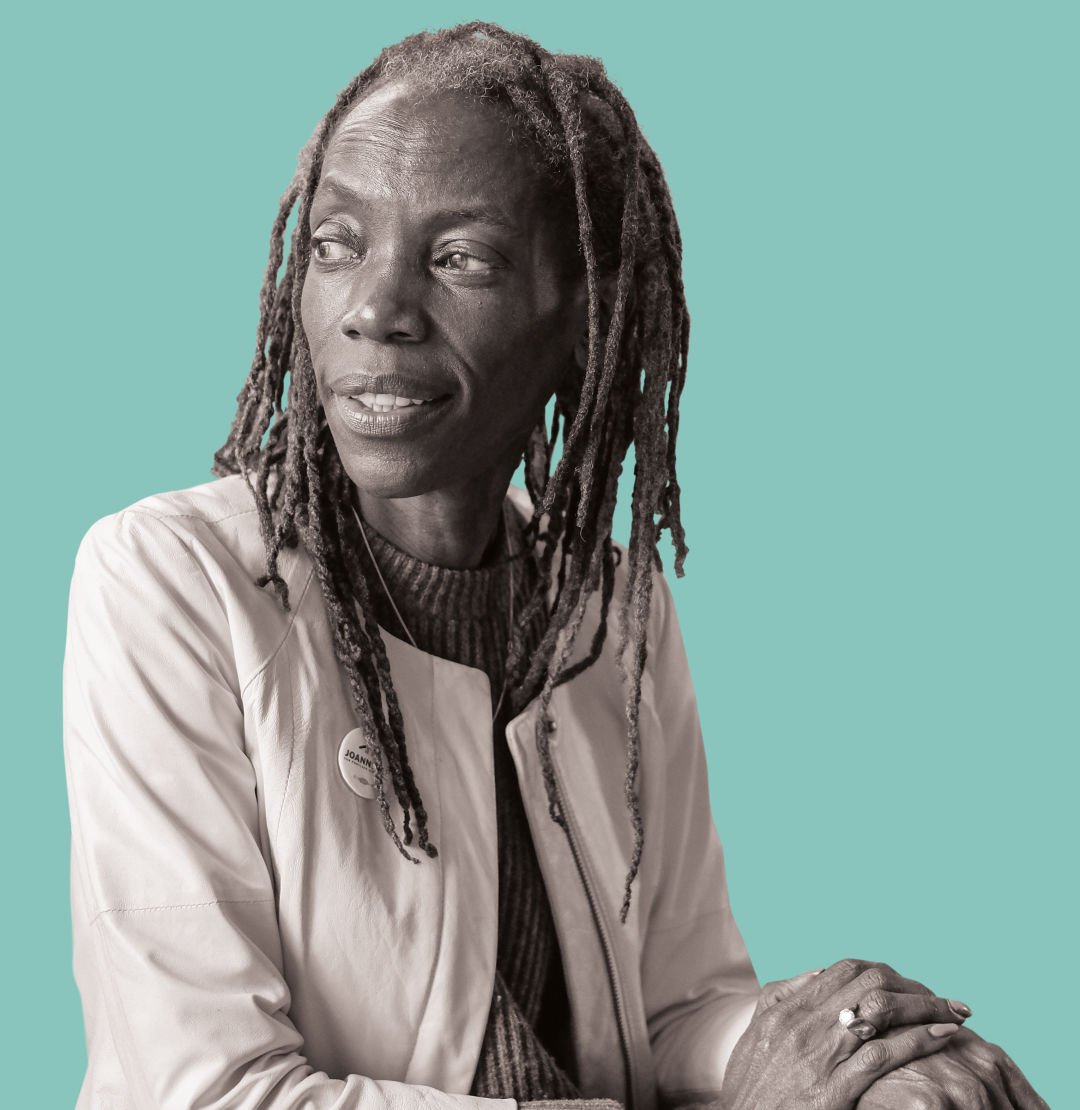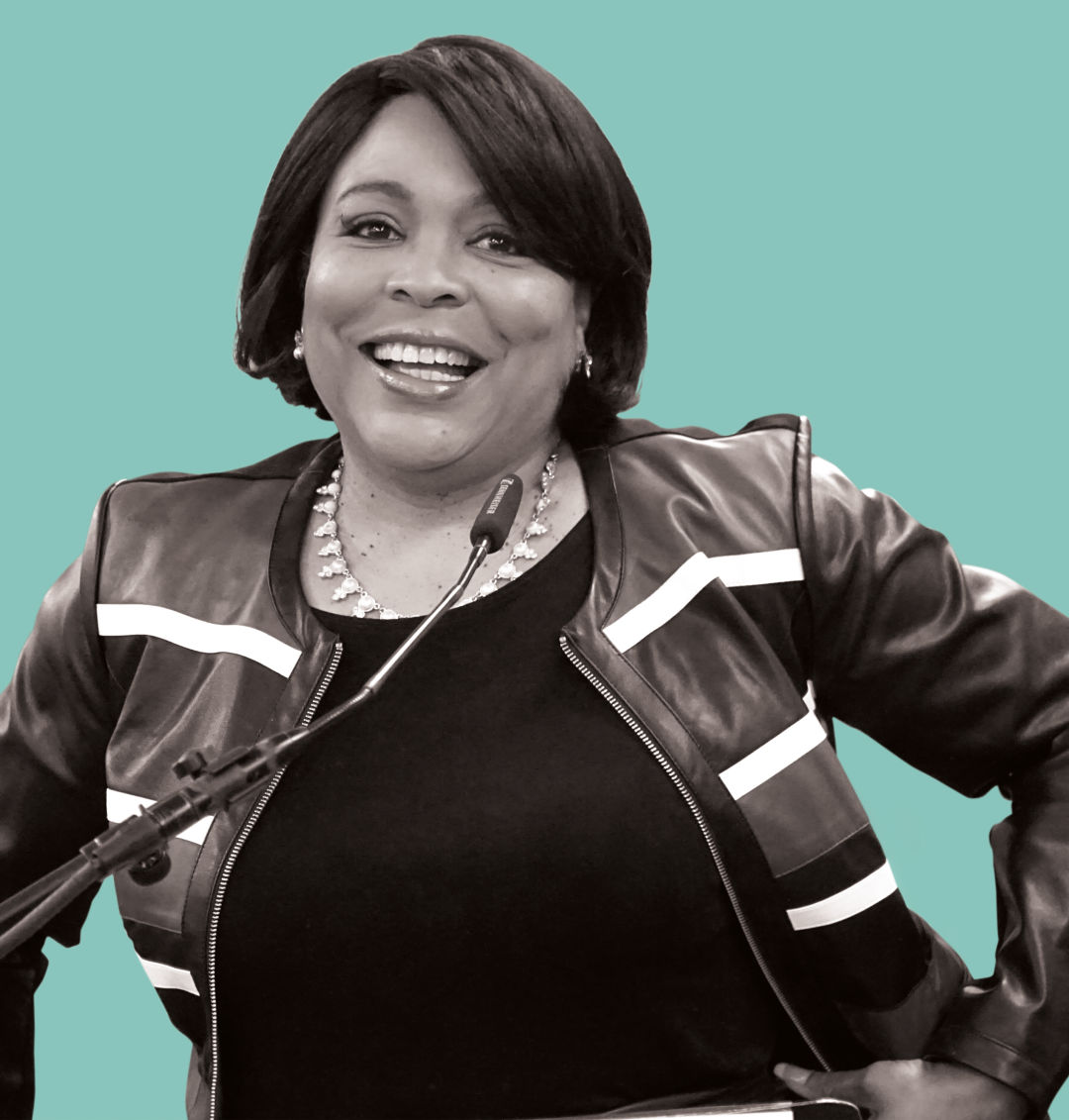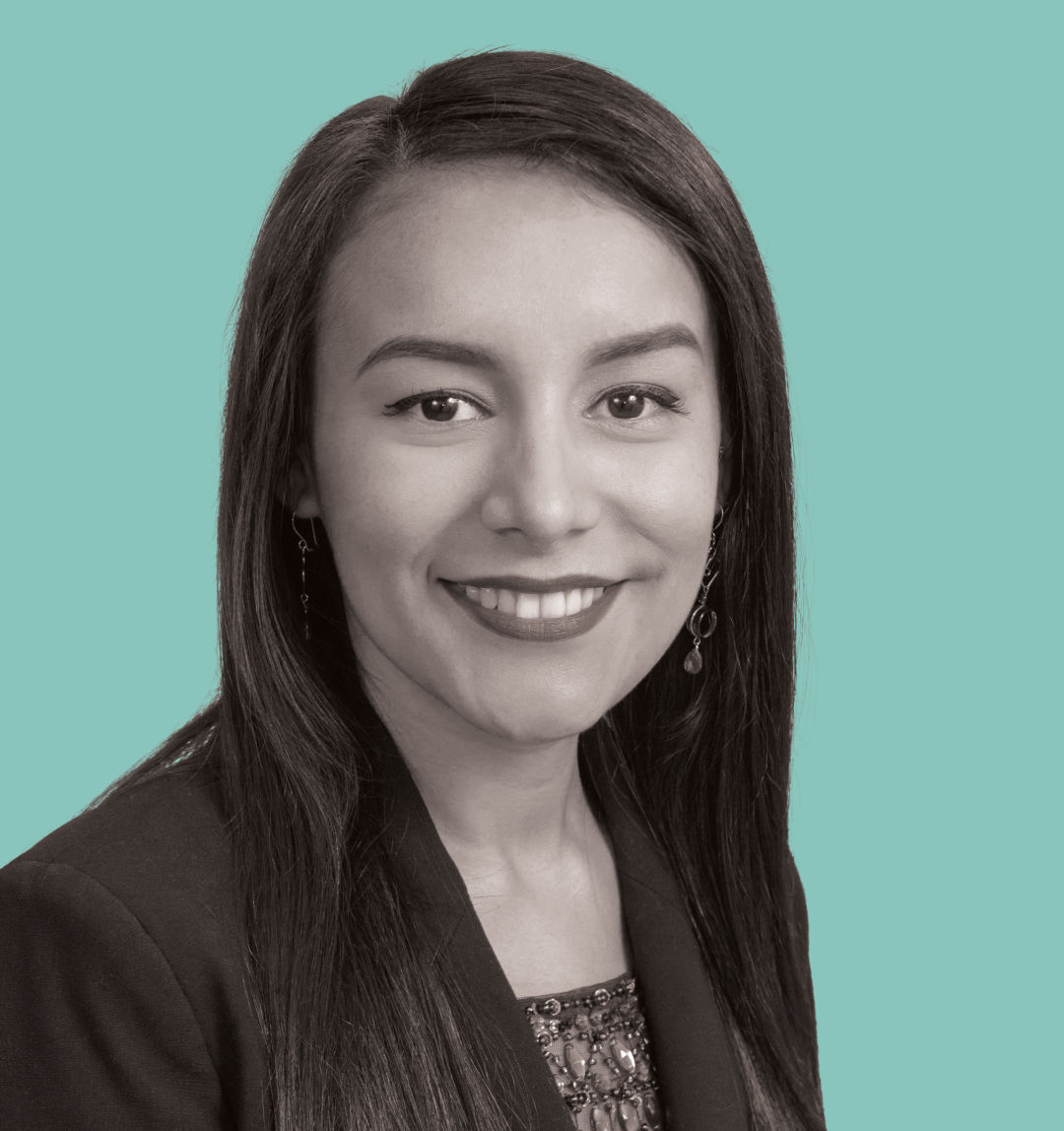
No Woman of Color Has Ever Served on Portland City Council. This Election Could Change That.
In any other modern-day Portland election, the entrance of a vaguely liberal 30-something white guy into a city council race might have elicited a shrug. But last October, when former Oregon Public Broadcasting newscaster Spencer Raymond announced on social media his pursuit of outgoing Commissioner Dan Saltzman’s seat, the response was anything but muted.
“Spencer, do yourself a huge political favor and don’t run,” state Rep. Diego Hernandez, a Portland Democrat, wrote on Facebook—in one of the milder comments.
The backdrop for this backlash? Something the city of Portland has never seen in its 167-year history: when voters fill out ballots in May’s city council primary, a woman of color is likely to come out on top. It’s very possible two women of color will face each other in a November runoff, and a national midterm certain to evoke heated passions will also bring a Portland milestone.
Two candidates in the race, Multnomah County Commissioner Loretta Smith and former state Rep. Jo Ann Hardesty, boast decades of experience in public service in Portland. A third, Andrea Valderrama, arrives with more modest credentials: a David Douglas school board seat and more than four years as a staffer to Mayor Ted Wheeler and former Commissioner Steve Novick.
Even that résumé looked downright Rodham-Clintonesque compared with Raymond’s, a bar co-owner and high school ski coach. Facing anger at what many saw as a tone-deaf plunge into a race that could shift Portland’s historically lily-white politics, he lasted less than two months. Exiting the race in December, Raymond said he “was not able to communicate my ideas ... in the current media and political environment.”
No loss, says Hernandez, who is backing Valderrama. “That voice was already at the table,” he says, “or has historically always been at the table.”
True, that. Since 1851, only eight women, all white, have served on the Portland City Council. Only two people of color, both men, have ever served, now decades ago. The first African American, Charles Jordan, joined the council by appointment in 1974. (“Jordan is a black,” the Oregonian noted in an introductory profile.) Dick Bogle came next, after a career as a policeman, city hall aide, and Oregon’s first black television journalist. He served two terms on the council, through 1992.
City government’s ranks have diversified since then; last year Wheeler welcomed Portland’s first black female police chief, for example. The Hardesty-Smith-Valderrama race—which also features three other candidates—suggests that come 2019, one of city council’s five seats could reflect the city’s long-disenfranchised communities of color.
The three candidates of color espouse many familiar liberal Portland values. But they cut distinct profiles. Anticipating how the vote will split is as difficult as predicting Donald Trump’s next volatile tweet. Mike Lindberg, a city commissioner from 1979 to 1996, summed up the uncertainty: “It’s a really challenging race for a lot of people on the progressive side.”

Jo Ann Hardesty: "I hope voters do what they normally do, which is to compare candidates and ask, 'Who would you most want to represent you?'"
Image: Courtesy K. Kendall
Last August, Jo Ann Hardesty—a longtime local activist and former member of the state House of Representatives—visited Dan Saltzman at his city hall office. Saltzman, 64, was in the midst of his fifth council term, an epic tenure he’d planned to continue with a run this year. Hardesty described her message to the mild-mannered former engineer: “I think it’s respectful to say eyeball to eyeball, ‘I’m here to take you out,’” Willamette Week reported her saying. “‘You can go peacefully. Or you can go kicking and screaming.’”
Saltzman bowed out the next month. (He quibbled with the drama of Hardesty’s account: “I give her credit for the eyeball-to-eyeball part,” he told Portland Monthly. “That did happen.”) The move signaled Hardesty’s determination, and an appetite for battle she’s shown for years.
In November, the 60-year-old candidate stood on stage at a Southeast Portland community center housed in a former church, addressing mostly middle-aged white voters folded into the wooden pews. Hardesty tackled a topic that had little to do with the core functions of city government, but showed the same assertive attitude she adopted to push Saltzman aside, arguing that the principles of free speech do not permit hate speech. “I love the ACLU because 90 percent of the time they get it right,” she said. “But when it comes to white supremacists ... the ACLU is flat-out wrong.”
She then accused state leaders of complicity for ignoring documented hate-speech incidents, before urging the white, middle-class crowd to confront racism personally. “You’re the ones who have got to do this; this is your job. It’s true. I can’t do it, because if I could have, it would have been done a long time ago.”
Those jabs—and years spent birddogging city council to advocate greater accountability for Portland cops—give Hardesty the aura of an outsider, but she’s no stranger to local politics’ inner circle. Formerly known as Jo Ann Bowman, she worked in the 1990s for Multnomah County Chair Bev Stein; then, from 1995 to 2001, she represented Northeast Portland in the Oregon House. She ran for county chair, unsuccessfully, in 2001.
Despite her record of public service, Hardesty faces some questions about what kind of political style she’d adopt at city hall, where the intersecting interests and personalities of just five commissioners put relationships—and alliances—at a premium. At events, she displays the passion of an activist (she was a longtime host at KBOO community radio) and the ferocity of a military officer (she served in the navy). In January, about 45 people noshed on pita at Hoda’s Lebanese Restaurant on SE Belmont Street as Hardesty explained a tense 2016 confrontation. The mayor at the time, Charlie Hales, had secretly negotiated a new police contract, sparking protests that drew riot cops to city hall. “That was the day I knew we had the wrong people in office, and we had to do something about it,” she said, blue nail polish streaking the air as she emphasized her points.
Hardesty, also still officially president of the NAACP of Portland despite stepping down for the duration of the campaign, has embraced her role as a fighter and a blunt talker. She grew up in Baltimore as one of 10 children and moved to Portland from California in 1990, seeking a place where she could do meaningful work. Her first job in Portland was with the Black United Fund of Oregon.
“I’m not one of those politicians who goes along to get along,” she told the Oregonian in 2001. “Too often we elect people who don’t make anybody mad, but if you don’t make anybody mad, no real change comes.”
Randy Leonard sat next to Hardesty in the legislature during the 1999 session. Later, he was on the receiving end of her criticism when he was on Portland City Council, but he says Hardesty is deliberate in her dressing-downs. “I don’t see her as a bomb thrower just carelessly throwing out verbal projectiles,” he says. “She has a focus. She may be a little more blunt about it, but I’m not sure that’s a bad thing.”

Loretta Smith: "I do my homework. I ask the tough questions."
In November, Multnomah County Commissioner Loretta Smith joined a panel discussion on challenges black women face in the professional world. State Rep. Janelle Bynum, a first-term Clackamas Democrat, and former state Sen. Margaret Carter, Oregon’s first black female legislator, joined her.
Two days earlier, news had broken that Oregon’s secretary of state would fine Smith $250 for violating election law by asking county staffers to work at political events. In the press, Smith blasted the state investigation, calling it the product of a racially and politically motivated hit job—even though she had invited the inquiry months earlier. The secretary of state would fine Smith a second time in December, when the office ruled she had failed to update her campaign finance records.
“I want to talk about the M-word,” said moderator Traci Rossi, who leads Portland State University’s Center for Women’s Leadership.
She was alluding to the media, and Smith had plenty to say in response.
“I’ve been thinking about putting a blog together myself,” she said. Tapping her fingers against the table, she mimed typing, telling the crowd what she’d write there when “folks go sideways”: “Liar, liar, liar.”
Smith comes to the city council race as both the early frontrunner—she has the backing of influential unions and had raised $150,000 as of late February, compared with Hardesty’s $112,000—and the candidate facing the most scrutiny. She has been accused, in a 2017 Multnomah County report, of fostering “an environment in which she felt comfortable making demeaning or negative statements to and/or about female staffers.” Activists have demanded she resign from her current seat because she announced in fall 2017 she would run for city council. The county charter says sitting commissioners can’t run for another office until the final year of their term—2018, in her case.
“I’ve had good headlines, and I’ve had bad headlines,” Smith added at that forum. “The important thing is you’re getting some headlines. It means you’re working.”
Resilience has served Smith well in the past. A former longtime local staffer to US Sen. Ron Wyden, Smith won her seat on the Multnomah County Commission in the 2010 general election by trouncing runoff opponent Karol Collymore, who had commanded a sizable lead in the primary. “They gave me a 7 percent chance of winning,” Smith says of that race now. “Nobody saw me coming. Unfortunately, they see me coming this time.” (In 2011, Smith also experienced a stroke and underwent emergency surgery to remove a tumor near her brain.)
Smith dismisses the knocks against her as purposeful distractions. “It’s a way to discount and minimize what I’ve done,” she adds. For example, while she announced her candidacy last fall, she didn’t formally file for the race until this year. Jules Bailey, who’s white, walked exactly that tightrope when he ran for mayor in 2016.
“Wasn’t an issue when I ran but people are attacking @LorettaSmithPDX now,” Bailey tweeted in December. “Double standard? The race should be about issues.”
Smith, a 53-year-old single mom who split her childhood between her mother’s home in Michigan and her grandparents’ home in Portland, rattles off accomplishments when asked about the critical headlines. She’s founded successful workforce training programs and, in general, excelled at the kind of old-school constituent services upon which local political careers are made. Ron Herndon, director of Albina Head Start and a Portland politics veteran, said he once mentioned to Smith that an acquaintance, an ex-marine, hadn’t gotten his disability check. Smith worked for Wyden then, and the next time Herndon saw the veteran he was elated, saying he didn’t know whom Herndon had talked to, but that he had his check. “I’ve watched as she’s made sure that people who are frequently forgotten get what they need,” Herndon says.
On the other hand, none of Smith’s current colleagues on the county commission has endorsed her in the race; all declined to discuss her. At county meetings, Smith is known to sometimes grill county staff and lob questions at Chair Deborah Kafoury that come off like criticisms. That MO leads some to wonder whether she’s grandstanding.
Smith rejects those criticisms. “I do my homework,” she says. “I ask the tough questions.”

Andrea Valderrama: "I never imagined working in city hall, in the kinds of offices I cleaned with my grandfather."
Image: Courtesy Andrea Valderrama
Two women of color facing off for a Portland council seat broke historical precedent. Then Andrea Valderrama joined the race in October. Valderrama is only 29. But as a former staffer to Commissioner Steve Novick and a current adviser to Mayor Ted Wheeler, she’s clocked half her working life at city hall.
“She radiates maturity,” says Novick, who hired Valderrama in 2013 to address East Portland issues. “She’s the most mature 29-year-old I’ve ever met.”
At her campaign kickoff at Tamale Boy restaurant in the Woodlawn neighborhood, Valderrama told of a hardscrabble childhood punctuated by aftereffects of her mother’s experience with domestic violence. Her parents and grandparents escaped Peru amid fighting sparked by the militant group Shining Path, and she grew up in California and Oregon hearing tales of social justice rather than Cinderella, she said.
Valderrama’s grandfather started as a day laborer, and Valderrama accompanied him to work. He would later own his own business, painting houses and cleaning commercial buildings; her grandmother ran a home day care center. “I never imagined working in city hall, in the kinds of offices I cleaned with my grandfather,” said Valderrama, who graduated from the University of Oregon in 2011.
In 2016, Valderrama was appointed to the David Douglas School Board, a volunteer position she says she hopes to keep even if she wins the city seat. There, as she tells it in interviews, she’s practiced the art of consensus.
Last winter, in the wake of Donald Trump’s inauguration, Valderrama sponsored a school board resolution promoting the highly diverse David Douglas district, which serves 12 square miles of Southeast Portland just east of I-205, as inclusive and welcoming for immigrants. Several colleagues from more conservative swaths balked: some claimed they hadn’t had enough time to consider. The resolution ultimately passed, but with a split vote of 4–3.
Months later, Valderrama pushed to expand students’ access to contraception. This time, she got all her fellow board members on board, and her plan passed without opposition.
Valderrama, who contemplated running for state senate before jumping into the council race, clearly sees how the lesson translates to Portland’s five-person council. It’s not about getting a majority of votes with three yeses, she says: “It absolutely has to be getting to five.”
Portland’s large bloc of white voters (and, let’s face it, our mostly white media) might be prone to tokenize a single candidate. A race featuring three competitive women of color makes that impossible. Between Hardesty, Smith, and Valderrama, voters face a choice among contrasting visions of how to operate in Portland politics. Three other choices add to the mix. Stuart Emmons, a 63-year-old architect, ran unsuccessfully in 2016 for the council seat now held by Chloe Eudaly. His projects include affordable units, and he is betting housing remains one of Portlanders’ top concerns. Felicia Williams, a 40-year-old downtown resident who performs compliance audits for a biotech company, is also emphasizing housing, as well as public safety. A late filer, Lew Humble, is a retiree and a frequent mayoral candidate.
If one wins outright (by having 50 percent of votes) or if two of the four women running survive the primary to face each other in a November runoff, another kind of history will be made: Portland City Council will enjoy a female majority for the first time. But that’s not the milestone that’s captured voters’ attention. Not since 2002, when Serena Cruz, then a county commissioner, ran against state legislator Randy Leonard for an open council seat, has a competitive female candidate of color emerged in a city election. (Leonard beat Cruz in their runoff with 53.6 percent of the vote.)
The barriers to citywide election are historically high. For one thing, it costs a lot of money to run a citywide race—possibly around $250,000. (Multnomah County has elected more women to its commission, including women of color, in part because it elects commissioners by district; only candidates for chair have to campaign countywide.) These relatively steep fundraising demands have usually favored the already connected. Without neighborhood-based districts, candidates must assemble broad winning coalitions. All these conditions have historically favored white candidates. This election offers Portland something different.
“I hope voters do what they normally do,” says Hardesty, “which is to compare candidates and ask, ‘Who would you most want to represent you? And what have they done?’” She adds: “I hope the race becomes less about race, and more about experience and aptitude.”




